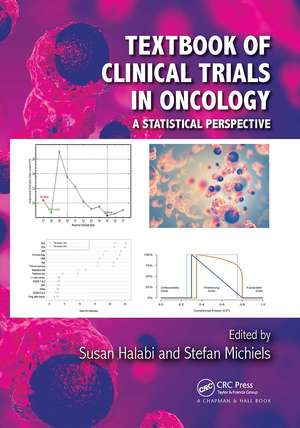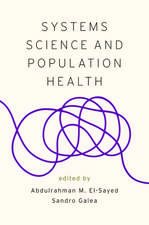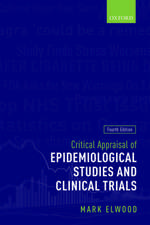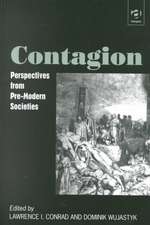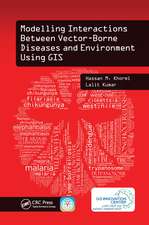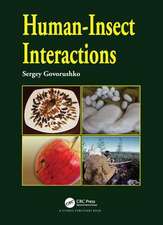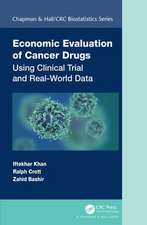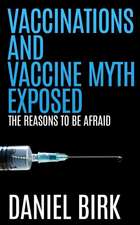Textbook of Clinical Trials in Oncology: A Statistical Perspective
Editat de Susan Halabi, Stefan Michielsen Limba Engleză Paperback – 18 dec 2020
Key Features:
- Cutting-edge topics with appropriate technical background
- Built around case studies which give the work a "hands-on" approach
- Real examples of flaws in previously reported clinical trials and how to avoid them
- Access to statistical code on the book’s website
- Chapters written by internationally recognized statisticians from academia and pharmaceutical companies
- Carefully edited to ensure consistency in style, level, and approach
- Topics covered include innovating phase I and II designs, trials in immune-oncology and rare diseases, among many others
| Toate formatele și edițiile | Preț | Express |
|---|---|---|
| Paperback (1) | 495.95 lei 6-8 săpt. | |
| CRC Press – 18 dec 2020 | 495.95 lei 6-8 săpt. | |
| Hardback (1) | 1031.82 lei 6-8 săpt. | |
| CRC Press – 16 mai 2019 | 1031.82 lei 6-8 săpt. |
Preț: 495.95 lei
Nou
Puncte Express: 744
Preț estimativ în valută:
94.90€ • 101.48$ • 79.13£
94.90€ • 101.48$ • 79.13£
Carte tipărită la comandă
Livrare economică 18 aprilie-02 mai
Preluare comenzi: 021 569.72.76
Specificații
ISBN-13: 9780367729578
ISBN-10: 0367729571
Pagini: 644
Dimensiuni: 178 x 254 x 36 mm
Greutate: 1.08 kg
Ediția:1
Editura: CRC Press
Colecția Chapman and Hall/CRC
Locul publicării:Boca Raton, United States
ISBN-10: 0367729571
Pagini: 644
Dimensiuni: 178 x 254 x 36 mm
Greutate: 1.08 kg
Ediția:1
Editura: CRC Press
Colecția Chapman and Hall/CRC
Locul publicării:Boca Raton, United States
Cuprins
The need for this book. Selection of endpoints. Co-primary Endpoints. Surrogate Endpoints. Innovative Phase I. Phase II. Phase II Biomarker, basket trials. Sample Size for phase III. Multi-Arm trials. Non-inferiority trials. Cure Rate. Design and Analysis of Immunotherapy Trials Data Monitoring Superiorirty and Futility Monitoring. Competing Risks. Missing Data. Multiple Comparison. Biomarker-based clinical trials. Adaptive designs. Trials designs for rare diseases in oncology. Prognostic Models. Validation Approaches. Identification of Predictive Markers. Subgroup Analysis. Statistical Issues in Genomic Studies. Developing and Validation of Signature
Notă biografică
Susan Halabi, Ph.D. is Professor of Biostatistics and Bioinformatics, Duke University, USA. She has extensive experience in the design and analysis of clinical trials in oncology. Dr. Halabi is a fellow of the American Statistical Association, the Society of Clinical Trials, and the American Society of Clinical Oncology. She serves on the Oncologic Drugs Advisory Committee for the Food and Drug Administration.
Stefan Michiels, Ph.D. is Head of the Oncostat team of the Center for research in epidemiology and population health (INSERM U1018, University Paris-Saclay, University Paris-Sud) at Gustave Roussy, Villejuif, France. His areas of expertise are clinical trials, meta-analyses and prediction models in oncology. Stefan is the currently the chair of the biostatisticians at Unicancer, a French collaborative cancer clinical trials group. Stefan holds a PhD in Biostatistics from the School of Public Health at the University Paris-Sud and Master Degrees in Statistics and in Applied Mathematics from the University of Leuven. His previous positions include the Université Libre de Bruxelles- Institut Jules Bordet (Belgium), the National Cancer Institute (France) and the University of Leuven (Belgium). He is currently member of the editorial board of the Journal of the National Cancer Institute and Annals of Oncology.
Recenzii
"This highly anticipated book focuses on clinical trials in oncology, ranging from early, middle, and late phase trials to advanced topics such as precision medicine and immunotherapy. This textbook is expected to be extremely useful for statisticians and investigators who have been doing clinical trials for years, and for future clinical researchers and statisticians who are eager to learn about the design, conduct, analysis, and interpretation of clinical trials in oncology.
We strongly recommend this textbook for four reasons. First, it covers multiple stages of clinical trials in oncology, from early, middle, to late development. Second, it examines various designs of clinical trials, including traditional study designs, flexible designs, and SMART (Sequential Multiple Assignment Randomized Trials) designs. Third, it gives insights into unique aspects of clinical trials in oncology compared with other therapeutic areas, such as time-to-event endpoints and censoring. Fourth, it consists of different types of materials that are suitable to different groups of readers, with some materials for readers who like to have an aerial view of the practical considerations and the other materials for readers who like to have deep understanding to motivate their theoretical research. In the following, we explain these four reasons in detail...To summarize, because of the above four reasons, we strongly recommend this book to clinical researchers and statisticians who are interested in the development, design, conduct and analysis of oncology clinical trials. This book is well-balanced between practical considerations and statistical theories involved in oncology clinical trials. We believe that this book will help advance the design and analysis of oncology clinical trials with the ultimate goal to improve the care of oncology patients and their quality of life."
- Man Jin and Yixin Fang, Journal of Biopharmaceutical Statistics, November
We strongly recommend this textbook for four reasons. First, it covers multiple stages of clinical trials in oncology, from early, middle, to late development. Second, it examines various designs of clinical trials, including traditional study designs, flexible designs, and SMART (Sequential Multiple Assignment Randomized Trials) designs. Third, it gives insights into unique aspects of clinical trials in oncology compared with other therapeutic areas, such as time-to-event endpoints and censoring. Fourth, it consists of different types of materials that are suitable to different groups of readers, with some materials for readers who like to have an aerial view of the practical considerations and the other materials for readers who like to have deep understanding to motivate their theoretical research. In the following, we explain these four reasons in detail...To summarize, because of the above four reasons, we strongly recommend this book to clinical researchers and statisticians who are interested in the development, design, conduct and analysis of oncology clinical trials. This book is well-balanced between practical considerations and statistical theories involved in oncology clinical trials. We believe that this book will help advance the design and analysis of oncology clinical trials with the ultimate goal to improve the care of oncology patients and their quality of life."
- Man Jin and Yixin Fang, Journal of Biopharmaceutical Statistics, November
Descriere
This is a textbook on the design and analysis of cancer clinical trials. It opens with a discussion of the choice of endpoints before moving onto discuss various types of trials across all phases of study, including basket trials, non-inferiority trials and multi-arm trials.
